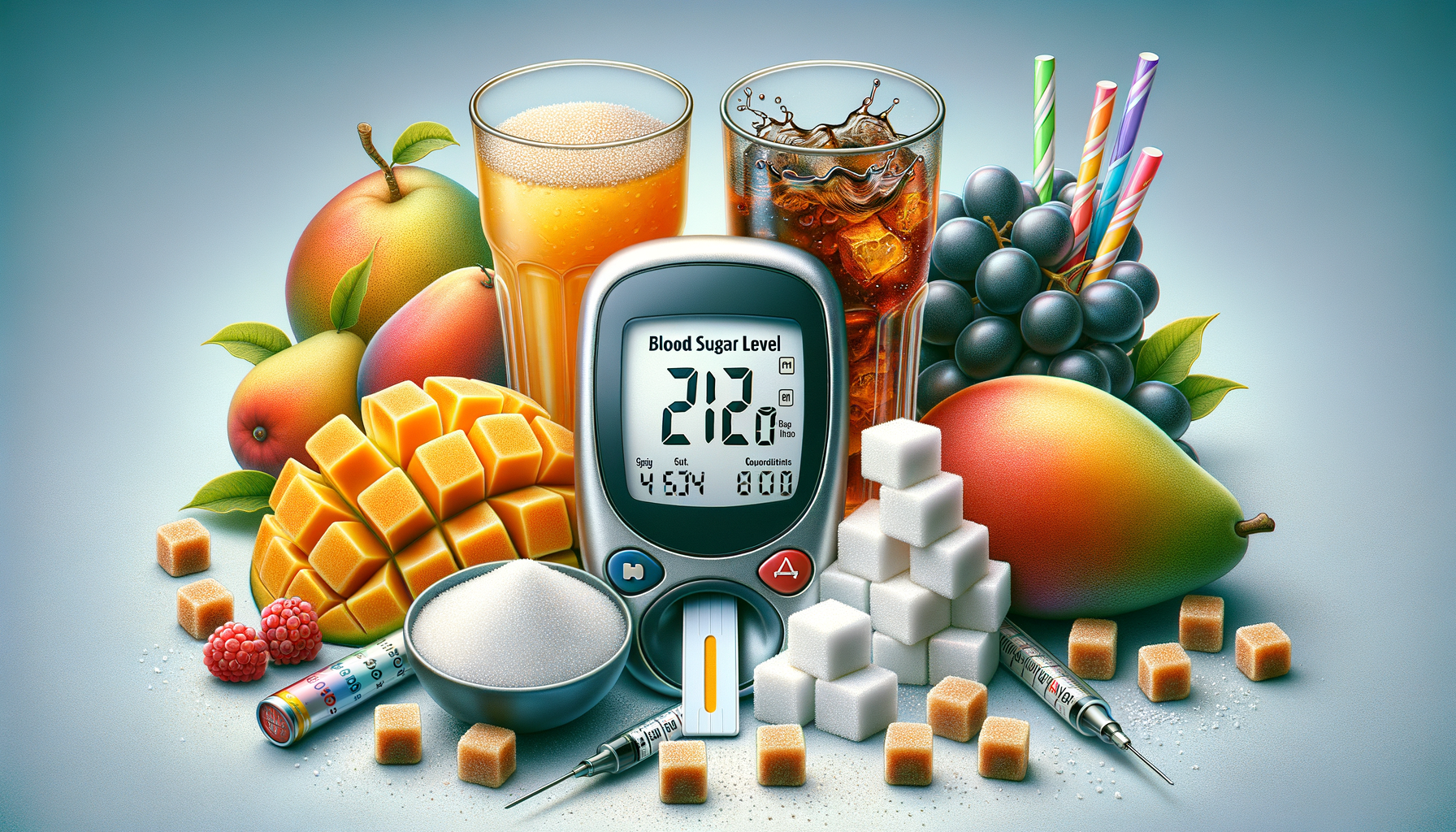
Could You Be Getting Too Much Sugar? 4 Clues to Watch
Understanding Blood Sugar Levels
Blood sugar, or glucose, is the primary sugar found in your blood and is the main source of energy for your body. Understanding blood sugar levels is crucial for maintaining optimal health, as it plays a vital role in how your body functions. Glucose levels fluctuate throughout the day, influenced by factors such as diet, physical activity, and stress. For most people, normal fasting blood sugar levels range from 70 to 99 mg/dL, while levels after eating should ideally be less than 140 mg/dL. Consistently high or low blood sugar levels can indicate underlying health issues such as diabetes or hypoglycemia, respectively.
Monitoring your blood sugar can help you understand how your body responds to different foods and activities. For instance, consuming a meal high in refined carbohydrates might cause a rapid spike in blood sugar, followed by a crash, leading to feelings of fatigue or irritability. Conversely, a balanced meal with complex carbohydrates, proteins, and healthy fats can provide a more stable energy source. Regular monitoring can also help identify patterns and triggers that affect your blood sugar, allowing for more informed dietary and lifestyle choices.
In recent years, technology has made it easier for individuals to monitor their blood sugar levels. Devices such as continuous glucose monitors (CGMs) provide real-time data and insights, empowering individuals to make proactive health decisions. By understanding and managing blood sugar levels, you can reduce the risk of developing chronic conditions, enhance your energy levels, and improve overall well-being.
The Impact of Diet on Blood Sugar
Diet is a significant factor affecting blood sugar levels. The types of carbohydrates consumed have a direct impact on how quickly blood sugar levels rise. Simple carbohydrates, found in sugary snacks and beverages, are rapidly absorbed into the bloodstream, causing a quick spike in blood sugar. In contrast, complex carbohydrates, such as those found in whole grains, vegetables, and legumes, are digested more slowly, leading to a gradual increase in blood sugar levels.
Incorporating a balanced diet that includes a variety of nutrients can help maintain stable blood sugar levels. Here are some dietary tips for managing blood sugar:
- Choose whole grains over refined grains to slow digestion and prevent spikes.
- Pair carbohydrates with protein or healthy fats to balance blood sugar levels.
- Limit sugary beverages and opt for water or unsweetened drinks.
- Include plenty of fiber-rich foods, such as fruits, vegetables, and legumes, to aid digestion and stabilize blood sugar.
It’s also important to consider portion sizes and meal timing. Eating smaller, more frequent meals can help prevent blood sugar fluctuations. Additionally, being mindful of portion sizes can prevent overeating, which can lead to a rapid increase in blood sugar levels. By making conscious dietary choices, you can support your body’s natural ability to regulate blood sugar and promote overall health.
Physical Activity and Blood Sugar Management
Physical activity plays a crucial role in managing blood sugar levels. Exercise helps increase insulin sensitivity, allowing your cells to use available glucose more effectively. This can lead to lower blood sugar levels and improved overall health. Regular physical activity also helps in weight management, which is important for individuals with insulin resistance or diabetes.
Engaging in a variety of exercises can provide different benefits for blood sugar management. Aerobic exercises, such as walking, jogging, or cycling, help improve cardiovascular health and can lower blood sugar levels. Strength training exercises, like weightlifting, increase muscle mass, which can enhance glucose uptake by the muscles. Flexibility and balance exercises, such as yoga or tai chi, can help reduce stress, which is another factor that can influence blood sugar levels.
For optimal blood sugar control, aim for at least 150 minutes of moderate-intensity aerobic exercise per week, combined with two days of strength training. It’s important to find activities you enjoy, as this increases the likelihood of maintaining a consistent exercise routine. Remember to monitor your blood sugar levels before and after exercise to understand how your body responds and to make necessary adjustments to your routine.
Stress and Its Effect on Blood Sugar
Stress is an often-overlooked factor that can significantly impact blood sugar levels. When stressed, the body releases hormones such as cortisol and adrenaline, which can cause blood sugar levels to rise. This response is part of the body’s „fight or flight“ mechanism, providing a quick source of energy to deal with perceived threats.
Chronic stress can lead to prolonged periods of elevated blood sugar, increasing the risk of developing conditions like type 2 diabetes. Managing stress is therefore crucial for maintaining healthy blood sugar levels. Techniques such as deep breathing, meditation, and mindfulness can help reduce stress and promote relaxation. Regular physical activity and adequate sleep also play a role in stress management.
It’s important to identify sources of stress in your life and find effective ways to cope with them. This might involve setting boundaries, seeking support from friends and family, or engaging in hobbies that bring joy and relaxation. By addressing stress, you can support your body’s natural ability to regulate blood sugar and improve overall health.
Conclusion: Taking Charge of Your Blood Sugar
Understanding and managing blood sugar levels is essential for maintaining good health and preventing chronic diseases. By focusing on a balanced diet, regular physical activity, and effective stress management, you can take control of your blood sugar levels and enhance your quality of life. Remember that small, consistent changes can make a significant difference over time.
Whether you’re looking to prevent blood sugar-related health issues or manage an existing condition, staying informed and proactive is key. Regular monitoring and consultation with healthcare professionals can provide valuable insights and guidance. By taking charge of your blood sugar, you can enjoy a healthier, more energetic life.